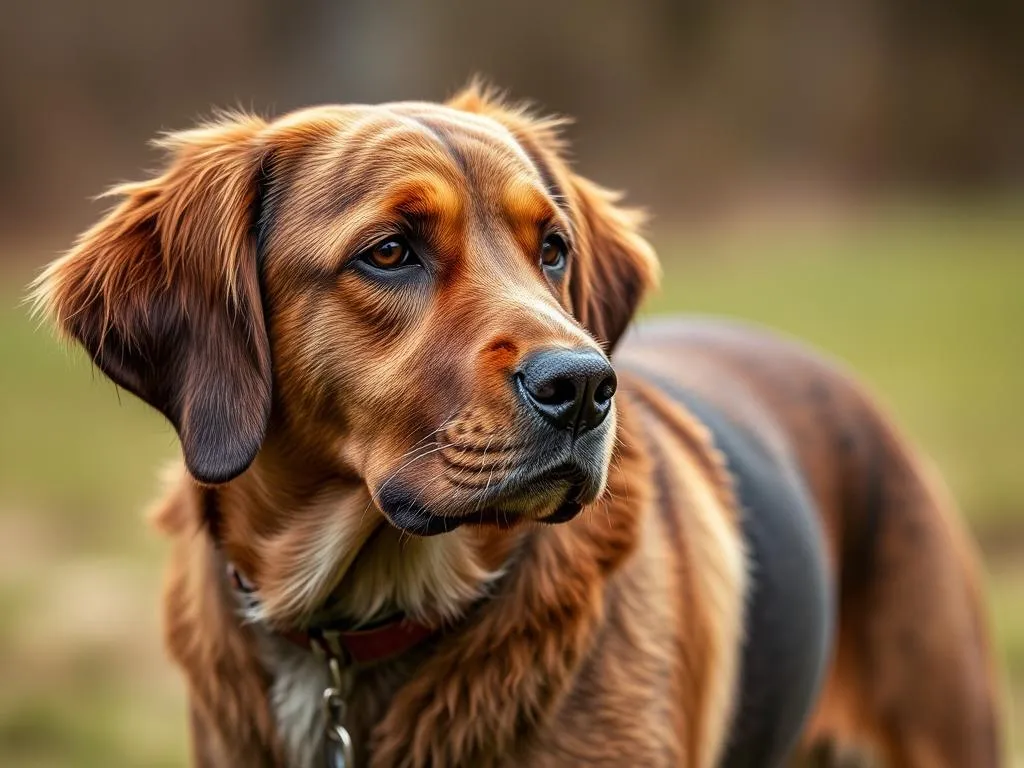
Introduction
Sporting dog breeds are a category of dogs known for their exceptional abilities in hunting, retrieving, and companionship. These breeds have been specifically developed to assist hunters in their pursuit of game, showcasing skills such as tracking, pointing, and retrieving. Over time, they have also become beloved family pets due to their friendly disposition and high energy levels.
The purpose of this article is to provide a detailed overview of various sporting dog breeds, their characteristics, care requirements, and how they adapt to family and lifestyle needs. With an increasing number of families and individuals seeking active companions, understanding these breeds is vital for making informed decisions about pet ownership.
History of Sporting Dog Breeds
Origins and Development
The origins of sporting dog breeds can be traced back to ancient civilizations, where dogs were bred for specific tasks related to hunting. Early sporting dogs were valued for their ability to assist hunters in locating and retrieving game from land and water. These breeds have evolved over centuries, with selective breeding enhancing their natural instincts and abilities.
Key Breeds in History
Several notable breeds have played a significant role in shaping the category of sporting dogs. The Labrador Retriever, for instance, was developed in Newfoundland and brought to England, where it became a popular hunting companion. Similarly, the English Setter has a rich history, originally bred to assist in finding game birds.
Characteristics of Sporting Dog Breeds
Physical Traits
Sporting dog breeds typically exhibit a range of physical traits, including various sizes, coat types, and color variations. Most sporting breeds are medium to large in size, with a well-proportioned build that supports agility and endurance. Common coat types include short, dense fur in breeds like the German Shorthaired Pointer, and longer, wavier coats in breeds like the Cocker Spaniel.
Temperament
The temperament of sporting dog breeds is generally characterized by their friendly, outgoing, and eager-to-please nature. These dogs are known for their high intelligence and are often easy to train, making them excellent companions for families and individuals alike.
Energy Levels and Exercise Needs
One of the defining characteristics of sporting dog breeds is their high energy levels. These dogs require regular exercise to maintain their physical health and mental well-being. Daily activities such as running, swimming, and playing fetch are essential to keep them engaged and prevent behavioral issues.
Popular Sporting Dog Breeds
Retrievers
Labrador Retriever
The Labrador Retriever is one of the most popular sporting dog breeds, known for its versatility and friendly demeanor. These dogs are highly trainable and excel in various activities, including obedience, agility, and hunting. Labradors are great family pets due to their gentle nature and love for children. They require regular exercise and mental stimulation to thrive.
Golden Retriever
Another beloved breed is the Golden Retriever, which is renowned for its loyalty and intelligence. Golden Retrievers are excellent family dogs, known for their friendly disposition and playful nature. They are highly trainable and often participate in various dog sports, including agility and obedience. Like Labradors, they require regular exercise and enjoy activities like swimming and retrieving.
Spaniels
Cocker Spaniel
The Cocker Spaniel is a smaller sporting breed known for its affectionate nature and beautiful, wavy coat. These dogs are friendly and sociable, making them great family pets. Cocker Spaniels thrive on companionship and require regular exercise, including walks and playtime, to keep them happy and healthy.
English Springer Spaniel
The English Springer Spaniel is another popular spaniel breed, known for its energy and enthusiasm. These dogs are highly active and excel in hunting and retrieving tasks. With their friendly and outgoing nature, they are great companions for families who enjoy outdoor activities. Regular grooming is essential to maintain their beautiful coat.
Setters
English Setter
The English Setter is a graceful and athletic breed known for its excellent hunting skills. These dogs are friendly and gentle, making them great companions for families. English Setters require regular exercise, including long walks and play sessions, to keep them physically and mentally stimulated. Their beautiful coat requires regular grooming to prevent matting.
Irish Setter
The Irish Setter is known for its striking red coat and energetic personality. These dogs are friendly, affectionate, and thrive on human interaction. Irish Setters excel in various dog sports and require ample exercise to maintain their health. They are great family pets and enjoy activities such as running and fetching.
Pointers
German Shorthaired Pointer
The German Shorthaired Pointer is a versatile and energetic breed, known for its exceptional hunting abilities. These dogs are intelligent and eager to please, making them easy to train. They require regular exercise and mental stimulation to prevent boredom. Their short coat is easy to maintain, requiring minimal grooming.
English Pointer
The English Pointer is another breed renowned for its hunting prowess. These dogs are known for their speed and endurance, making them excellent companions for active individuals. English Pointers are friendly and require regular exercise to stay fit and healthy. They thrive in environments where they can run and explore.
Care and Training for Sporting Dog Breeds
Basic Care Requirements
Caring for sporting dog breeds involves addressing their basic needs, including nutrition, grooming, and health check-ups. A high-quality diet formulated for active dogs is essential to keep them healthy and energetic. Regular grooming is necessary to maintain their coats, especially for breeds with longer fur.
Training Essentials
Training is crucial for sporting dog breeds, as they are intelligent and eager to learn. Basic obedience training is essential to ensure good behavior and socialization. Positive reinforcement techniques, such as treats and praise, work well for these breeds. Early socialization with other dogs and people is also vital for developing a well-adjusted pet.
Activities & Engagement
Engaging sporting dog breeds in various activities is essential for their physical and mental well-being. Activities such as agility training, fetch, swimming, and hiking can keep them stimulated. These dogs thrive on interaction and enjoy games that challenge their intelligence and agility.
Choosing the Right Sporting Dog Breed
Assessing Lifestyle Compatibility
When considering a sporting dog breed, it is essential to assess your lifestyle and living situation. Families with children may benefit from breeds known for their gentle nature, such as the Golden Retriever or Cocker Spaniel. Active individuals may prefer breeds like the German Shorthaired Pointer, which requires more exercise and engagement.
Understanding Breed-Specific Needs
Each sporting breed has unique needs that should be considered when choosing a dog. Some breeds require more exercise and mental stimulation than others. Understanding these requirements can help ensure a good match between the dog and its owner.
Adoption vs. Purchasing
When acquiring a sporting dog breed, potential owners must decide between adopting from a shelter or purchasing from a breeder. Adoption can be a rewarding experience, providing a home for a dog in need. However, purchasing from a reputable breeder can ensure a healthy dog with a known lineage. Each option has its pros and cons, and potential owners should weigh these carefully.
Common Health Issues in Sporting Dog Breeds
Genetic Conditions
While many sporting dog breeds are generally healthy, they can be prone to specific genetic conditions. Common issues include hip dysplasia, eye disorders, and certain heart conditions. It’s crucial for potential owners to research breed-specific health concerns and choose responsible breeders who conduct health screenings.
Preventive Measures
Regular veterinary visits and screenings can help detect potential health issues early. Vaccinations, parasite control, and routine health check-ups are essential for maintaining a dog’s health. Owners should also be aware of breed-specific health issues and discuss them with their veterinarian.
Diet and Exercise for Longevity
A balanced diet and regular exercise are vital for the longevity of sporting dog breeds. High-quality dog food formulated for active breeds should be provided to meet their nutritional needs. Additionally, regular exercise can help prevent obesity and associated health problems. Engaging in activities that stimulate both the mind and body is crucial for overall well-being.
Conclusion
In summary, sporting dog breeds offer companionship, loyalty, and a zest for life that many families and individuals appreciate. Their friendly nature, intelligence, and athleticism make them ideal pets for those who lead active lifestyles. Understanding the characteristics, care needs, and potential health issues associated with these breeds can help prospective owners make informed decisions.
Adopting a sporting dog breed can lead to a fulfilling partnership, filled with adventure and love. With proper care, training, and engagement, these dogs can thrive in their homes, providing joy and companionship for years to come.
FAQs About Sporting Dog Breeds
What are the most common sporting dog breeds?
Some of the most common sporting dog breeds include the Labrador Retriever, Golden Retriever, Cocker Spaniel, English Springer Spaniel, German Shorthaired Pointer, and Irish Setter.
How much exercise do sporting dog breeds need?
Most sporting dog breeds require at least one hour of exercise daily, which can include walks, runs, swimming, or playing fetch. They thrive on activities that stimulate both their physical and mental abilities.
Are sporting dog breeds good with children?
Yes, many sporting dog breeds are known for their friendly and gentle nature, making them great companions for families with children. However, it’s essential to supervise interactions and teach children how to interact respectfully with dogs.
Do sporting dog breeds require special grooming?
Grooming needs vary by breed. While some sporting dog breeds like the German Shorthaired Pointer require minimal grooming, others, such as the Cocker Spaniel, need regular brushing to prevent matting and maintain coat health.
Can sporting dog breeds live in apartments?
While many sporting dog breeds are adaptable, they do need regular exercise to thrive. Families living in apartments should ensure they can provide sufficient physical activity through daily walks, playtime, and trips to parks.









